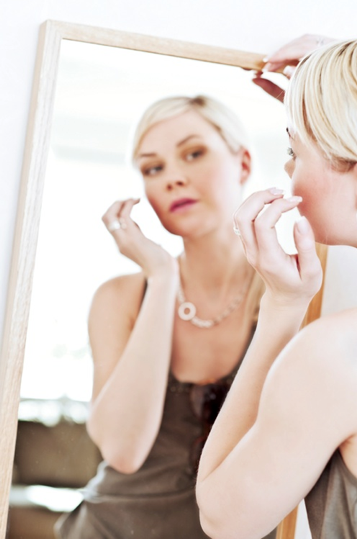Ask the Experts: Skin changes during pregnancy
This month’s Ask the Experts topic is body changes during […]
This month’s Ask the Experts topic is body changes during pregnancy. Today, Richard F. Eisen, M.D. and Ramzi W. Saad, M.D., Board Certified Dermatologists at the South Shore Skin Center and Spa in Massachussetts, join us to discuss the various skin conditions that can arise during pregnancy and how you can seek treatment for them.

Surging hormones
Changes in hormones and stress-related elevated levels of cortisone in the body can affect your skin. Some skin conditions cannot be eradicated during pregnancy, but they can be effectively managed.
Otherwise known as the “mask of pregnancy”, melasma exhibits as dark brown or gray patches that appear on the cheeks, forehead, chin and above the lip. Melasma is hormone-induced, but it can be triggered by UVA/UVB exposure. The most common prevention/treatment of Melasma is the daily application of a sunscreen containing a minimum SPF 30 and wearing a wide-brimmed hat. If Melasma continues after pregnancy, your dermatologist may recommend laser treatments or maintenance therapy.
Severe acne can be brought on by hormonal changes. There are several topical acne medications that may be safely used during pregnancy. Be sure to consult your dermatologist who can prescribe a topical acne medication that is right for you.
The itchy rash known as PUPPP (pruritic uticarial papules and placques of pregnancy) generally resolves after pregnancy but may be safely treated with topical corticosteroids as directed by your dermatologist.
Stretch marks and Linea Nigra, a dark vertical line running from the navel to the pubic bone, are other skin conditions that may develop during pregnancy, but are best left treated until after your baby’s birth. Lasers can reduce the redness in stretch marks and Fraxel re:store and re:pair laser treatments can be used to treat Linea Nigra post pregnancy.
Facial spider veins, which are benign but sometimes unsightly, may appear during pregnancy on the nose, cheeks or chin. Lasers and Intense Pulsed Light (which is a Photorejuvenation treatment) can reduce the numbers of these visible blood vessels. Spider veins on the legs may be treated with a Gentle YAG laser or with Sclerotherapy. Facial and leg spider veins should be treated post pregnancy and your dermatologist can determine which treatment would be most appropriate for you.
A little extra TLC
Neglecting your skin can result in skin that is dull, dry, flaky, excessively oily or prone to occasional breakouts. Daily maintenance and a little extra TLC will help to ensure your skin remains in tip-top condition during pregnancy.
Dry skin can increase the appearance of lines and make you look older. It can also exacerbate skin conditions such as eczema, which may require treatment with steroid creams. Cleanse your skin every day with a gentle cleanser or very mild soap. Beware of harsh scrubbing as it can actually damage your skin. Using strong cleansers, toners or soaps are not necessary and may actually contribute to skin dehydration. Be sure to moisturize the skin on your face and body every day.
To “refresh” your skin, remove dead and dry skin cells by occasionally exfoliating your skin. Exfoliation is somewhat similar to Microdermabrasion. At home, use a washcloth or a loofah sponge with cleanser on it to gently remove old skin cells. For more thorough and luxurious exfoliating and moisturizing, consider treating yourself to a gentle (non-medical) facial that deep cleans pores, exfoliates and hydrates your skin.
Nourish your skin from the inside out
Nutrition also plays a role in healthy skin. Foods that are rich in antioxidants, such as fruits and vegetables, are highly beneficial to the skin. Vitamin C (Ascorbic Acid) stimulates collagen production and is a highly effective anti-oxidant, so consuming foods and beverages known for their Vitamin C content, such as orange juice, each day will go a long way toward keeping your skin healthy.
Good hydration is also good for the skin. Consuming a lot of caffeinated beverages is not recommended because caffeine in large amounts will have a dehydrating effect on the skin. Drinking water is best for hydration.
Richard F. Eisen, M.D. And Ramzi W. Saad, M.D. are renowned Board Certified Dermatologists at South Shore Skin Center and Spa, one of Massachusetts’ most progressive dermatology practices offering a wide range of medical, surgical and cosmetic services. For more information, visit the website at southshoreskincenter.com.







